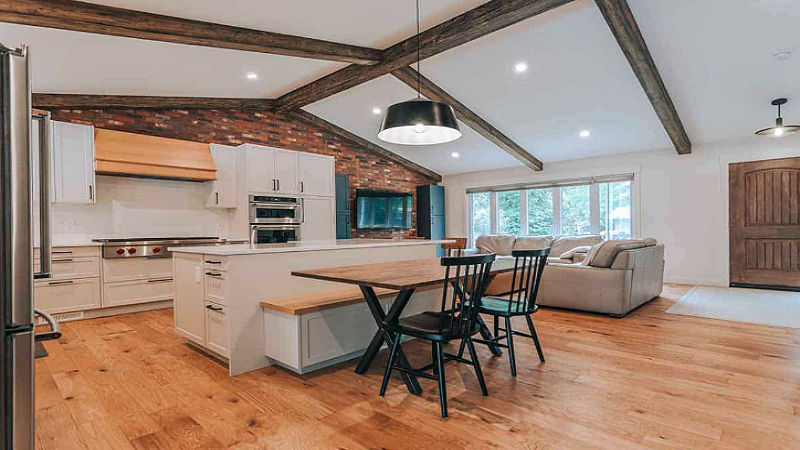Choosing the Right Flooring Materials for Your Construction Project Appropriate flooring materials are significant in giving your construction project functionality and aesthetic appeal. The kind of flooring you select goes a long way in dictating the appearance of space, especially regarding durability, comfort, and ease of maintenance.
From options in hardwood, and luxury vinyl flooring to eco-friendly ones, deciding conclusively and with detailed knowledge regarding your specifics is essential. The room’s purpose, budget, climate, and long-term maintenance considerations should guide your choice, balancing practicality with style. The following are the factors to guide you in choosing the suitable flooring material for your construction project.
Budget and Long-Term Costs
For any construction, the choice of the flooring material is determined first by the budget. Although expensive upfront, natural stone or solid hardwood flooring is durable and highly aesthetic, making it a valuable long-term investment.
Vinyl and laminate, cheaper alternatives, can mimic the look and feel of expensive materials at a lower cost. However, you’ll need to replace or maintain these cheaper options more often, which increases their overall expense. Decisions about which material to specify must balance upfront costs against durability and maintenance needs for the best value.
Consider the Functionality of the Space
When deciding on a flooring material, the most important factor to consider is the intended usage of the place. The choice of floor will often make a significant difference in the interior design of a home, so choosing materials that serve the functional needs yet complement the style of the project is crucial.
High-traffic areas include the hallways, living, and commercial spaces. Such places should use tile, vinyl, or hardwood as their materials. These materials can withstand deterioration in daily usage and can do so for an extended period. Areas like bedrooms and lounges may focus more on comfort rather than durability. Therefore, carpet or cork would serve their purposes.
Durability and Maintenance
The resistance of the flooring material should be appropriate for the anticipated traffic and use of the area. Ceramic tile, concrete, and natural stone are highly resistant and require little maintenance. Therefore, they may be used in areas with high traffic.
On the other hand, you should clean carpets and vinyl much more frequently or even replace them in areas with high traffic. It is also necessary to consider the ease of maintenance. Hardwood floors need polishing over time to keep their shine. In contrast, vinyl and tile are easier to clean and maintain, reducing long-term upkeep.
Climatic Considerations
The climate of Choosing the Right Flooring Materials for Your Construction Project location is another vital factor when selecting flooring materials. In areas with high humidity or extreme temperature conditions, hardwood materials risk warping or cracking over time. For this, tile or vinyl is better for handling environmental changes.
Conversely, if the general climate is cold, materials such as carpet and tiles designed for radiant heat could enhance warmth and insulation inside a space. Choosing flooring that suits the place’s climate ensures comfort and durability, making the investment worthwhile.
The selection of flooring materials involves balancing aesthetic appearance and functional usage while considering the budget allocation. Giving you the uses of each room, you will be well-guided in making selections that make your space more beautiful and highly functional by informing you about its durability, how it would be best maintained, and its sustainability.
Be it luxury vinyl flooring, practical hardwood, or eco-friendly, the right flooring suitable for your particular needs will add value in beautifying the overall design with longevity. See More

